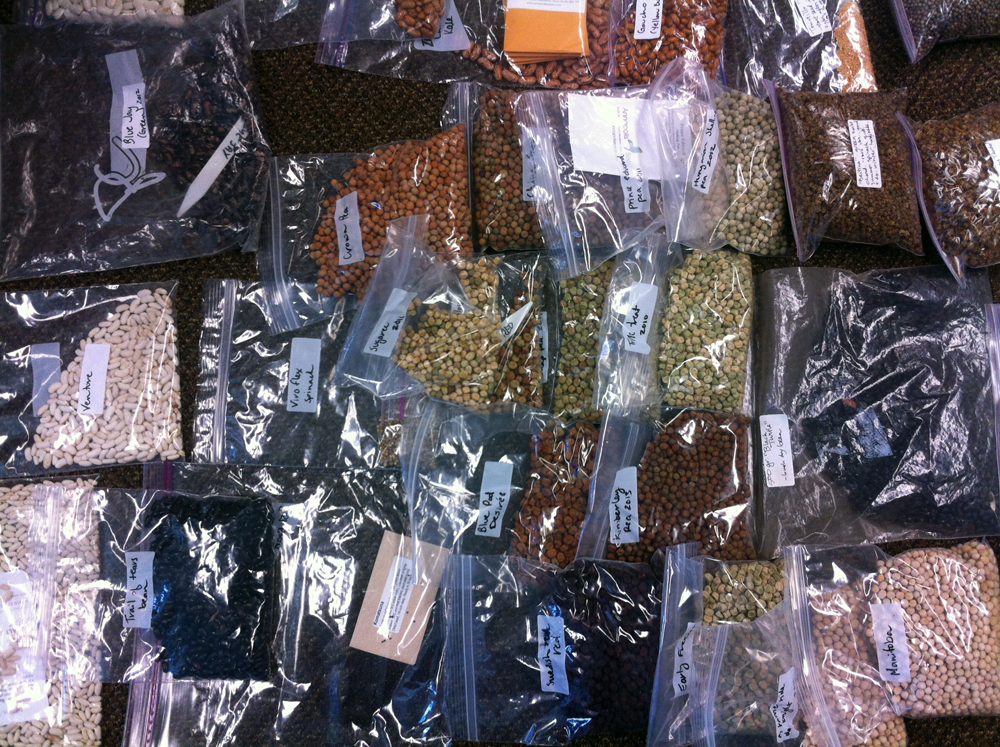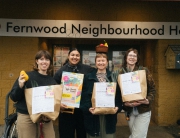>> LifeCycles Project Society
In the past, seed production was localized by necessity and tradition. However, in just a couple of generations, fewer farmers and gardeners are saving their own seed. Within modern agriculture, less value has been placed on regionally-adapted seed, and seed systems have become increasingly centralized. The result has been a marked loss in crop biodiversity—its estimated that 75% of the global diversity of vegetable varieties has disappeared in the last hundred years, due in large part to widespread corporate control of the world’s seed supply.
The Victoria Seed Library, a year-old partnership between LifeCycles and the Greater Victoria Public Library (GVPL), has joined the movement to help reverse this trend through access to rare and heritage varieties of seed and free seed saving workshops to build up skills and knowledge in the region. With 95% of the food we eat originating from seeds, LifeCycles and the GVPL see the Seed Library as a way to increase self-reliance within local food systems and collectively steward a local supply of seeds that are adaptive, resilient, and can respond to climate change.
The Seed Library’s collection fits into just two medium-sized Rubbermaid totes but that’s not to say it’s limited. In 2015, the Seed Library has more than double its offerings from the previous year, with 100 varieties available to a 200-person (and growing) membership. The collection travels to various branches within the public library system. Members can then sign-out up to 6 varieties of easy-to-save, mostly self-pollinating seed.
Focusing on self-pollinating varieties—such as tomatoes, lettuce, beans and peas—helps to ensure the genetic purity and quality of the collection. These varieties are also well suited to home-scale gardens as they don’t need the same isolation distances or population numbers as plants that cross-pollinate. Each ‘borrowed’ seed has the potential to produce one plant, which in turn can produce large amounts of seed to return to the collection. Unlike borrowing books, there are no fees for unreturned seed! The Seed Library is an opportunity to cultivate new skills, and get a taste for how simple the technologies of seed saving can be.
To participate, people must become members and attend a free orientation session, which gives an introduction to the why and how of seed saving. Members are asked to return a portion of the seeds they successfully save at the end of the season.
In 2015, the Victoria Seed Library will continue to grow deep roots through collaborating with local seed producers to deliver hands-on workshops and purchasing community seed-saving equipment. This spring, the Seed Library will also be forming the first Seed Library Steering Committee. For more info, contact vicseedlibrary@lifecyclesproject.ca.
The Seed Library runs from March-October. Member orientations are offered monthly, and Seed Libraries are held twice per month. Future dates and registration for orientations and workshops can be found at www.gvpl.ca/seedlibrary.






